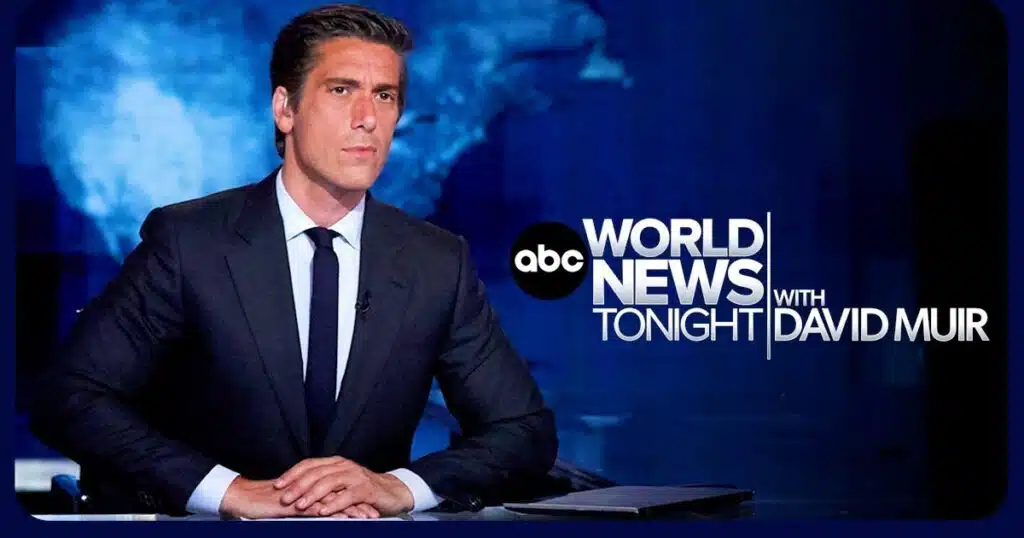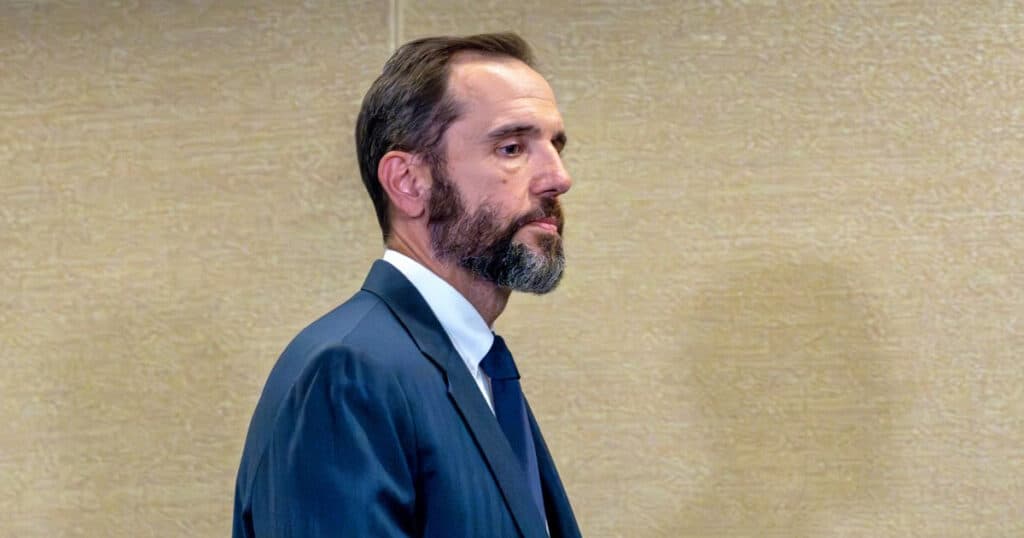
Corporate Media Is This Election’s Big Loser
The biggest loser following Tuesday’s astounding election—besides the Democrat Party’s agenda—is the corporate media that desperately tried to manufacture a president.
The legacy media’s full-blown implosion has been a long time coming. In the span of a few decades, America’s biggest media outlets have entirely squandered their credibility. And Americans are going elsewhere for their news and commentary.
My Daily Signal colleague, Bradley Devlin, rightly noted Monday that the Trump-Vance strategy of going on popular podcasts and other “alternative” media (though I’m not sure we should call it that anymore, after Tuesday night) would likely give the Republican ticket an electoral edge.
Here’s what Devlin concluded in his piece:
If Kamala Harris wins, the corporate media that’s propped up Harris’ cause even before President Joe Biden dropped out of the race will feel emboldened, and serious questions about the viability of alternative media ever posing a real threat to the corporate oligarch atop the media will percolate.
A Trump victory, however, could very well break the backs of the corporate media.
The corporate media won’t give up the game after this, but they’ve been dealt a devastating rebuke.
Former President Donald Trump, who may now also be called the president-elect, certainly made the rounds in the almost ludicrously biased corporate media space, as did his running mate, Sen. JD Vance of Ohio. But they didn’t rely on CBS, NBC, and The Washington Post to get the word out about who they are and what they stand for.
Instead, they went on separate episodes of “The Joe Rogan Experience.” Trump had a “fireside” chat with Elon Musk on X. And Trump and Vance aggressively courted the voters where they actually tune in and listen.
More than ever before, Americans got a glimpse of who Trump and Vance were without a legacy media filter.
Lo and behold, it turns out they weren’t “weird,” deranged proto-Nazis who hate immigrants and want poor people to be poorer.
And what about the other candidate, the one who was plopped into a presidential race at the last second without a primary by the Democrats, whose election pitch was defending “democracy”?
Well, the American people barely got any sense of who Harris was at all, beyond some canned answers during a few softball interviews with legacy media, one of which at least seems to have been highly edited. Oh, Harris did appear on Alex Cooper’s “Call Her Daddy” podcast at the last minute, but reviews were “mixed,” as they say.
Harris ran a Woman in the High Castle campaign, highly cultivated by the same fawning and friendly legacy media that covered up for her predecessor’s infirmities for four years.
But every single narrative the media cooked up since Biden left the presidential race in July has crumbled.
Harris wasn’t bringing the politics of “joy” to America, she wasn’t leading “Hope and Change 2.0.”
Americans were in a dark mood. The cost of living has exploded during the Biden-Harris presidency, the chaos at the border affects nearly everyone, and the global geopolitical landscape appears ominous and worsening.
For many Americans who showed up on Election Day, it’s clear that Harris barely connected better with them than a poorly disguised hologram would.
The fault in part lies with the Harris campaign to be sure. But the legacy media barely bothered to push the candidate to answer tough questions. From time to time, they grumbled, but they also seemed mostly content to let it slide.
The legacy media didn’t want to weaken Harris’ chances, especially given the narrow path she needed to travel to the presidency.
It didn’t work. The American people saw right through the scam.
And that means the catastrophe for the legacy media actually goes beyond the fact that they couldn’t manufacture a president out of nothing. What this election proved is that America simply doesn’t need them. People don’t trust them, don’t listen to them, and tune them out.
In the future, what incentive do Republican presidential candidates have to go on exceedingly biased network television networks to participate in debates?
Republicans no longer have to give Democrats home-field advantage if they don’t want to. They can talk to more people and have a more open conversation on X, Musk’s social media platform.
So the collapse of corporate media power doesn’t mean journalism is dead, far from it. There are now countless additional sources where Americans may get information, including right here at The Daily Signal.
What’s been broken is the information monopoly that the legacy media has held and abused for far too long.
Now, thanks to Kamala Harris’ defeat, there’s far less of a chance that Big Tech and Big Government are going to swoop in and censor “misinformation” they don’t like.
The election outcome proves that we live in a brave new media world, and that’s a good thing.



